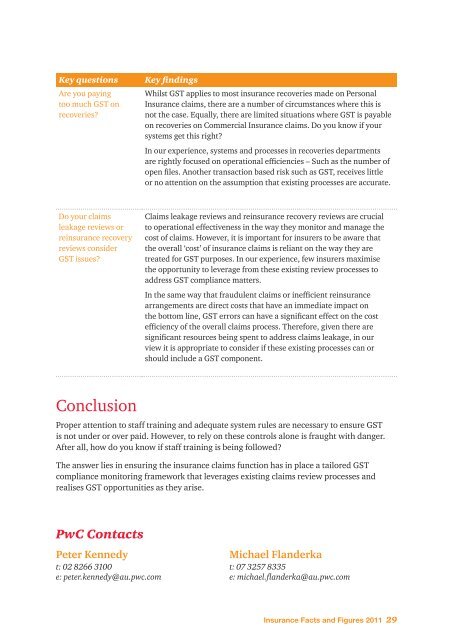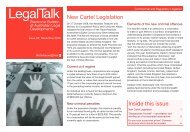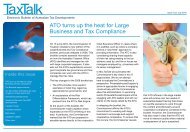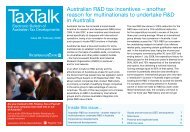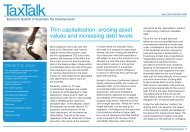PwC Insurance Facts and Figures 2011 - PricewaterhouseCoopers
PwC Insurance Facts and Figures 2011 - PricewaterhouseCoopers
PwC Insurance Facts and Figures 2011 - PricewaterhouseCoopers
Create successful ePaper yourself
Turn your PDF publications into a flip-book with our unique Google optimized e-Paper software.
Key questions<br />
Are you paying<br />
too much GST on<br />
recoveries?<br />
Key findings<br />
Whilst GST applies to most insurance recoveries made on Personal<br />
<strong>Insurance</strong> claims, there are a number of circumstances where this is<br />
not the case. Equally, there are limited situations where GST is payable<br />
on recoveries on Commercial <strong>Insurance</strong> claims. Do you know if your<br />
systems get this right?<br />
In our experience, systems <strong>and</strong> processes in recoveries departments<br />
are rightly focused on operational efficiencies – Such as the number of<br />
open files. Another transaction based risk such as GST, receives little<br />
or no attention on the assumption that existing processes are accurate.<br />
Do your claims<br />
leakage reviews or<br />
reinsurance recovery<br />
reviews consider<br />
GST issues?<br />
Claims leakage reviews <strong>and</strong> reinsurance recovery reviews are crucial<br />
to operational effectiveness in the way they monitor <strong>and</strong> manage the<br />
cost of claims. However, it is important for insurers to be aware that<br />
the overall ‘cost’ of insurance claims is reliant on the way they are<br />
treated for GST purposes. In our experience, few insurers maximise<br />
the opportunity to leverage from these existing review processes to<br />
address GST compliance matters.<br />
In the same way that fraudulent claims or inefficient reinsurance<br />
arrangements are direct costs that have an immediate impact on<br />
the bottom line, GST errors can have a significant effect on the cost<br />
efficiency of the overall claims process. Therefore, given there are<br />
significant resources being spent to address claims leakage, in our<br />
view it is appropriate to consider if these existing processes can or<br />
should include a GST component.<br />
Conclusion<br />
Proper attention to staff training <strong>and</strong> adequate system rules are necessary to ensure GST<br />
is not under or over paid. However, to rely on these controls alone is fraught with danger.<br />
After all, how do you know if staff training is being followed?<br />
The answer lies in ensuring the insurance claims function has in place a tailored GST<br />
compliance monitoring framework that leverages existing claims review processes <strong>and</strong><br />
realises GST opportunities as they arise.<br />
<strong>PwC</strong> Contacts<br />
Peter Kennedy<br />
t: 02 8266 3100<br />
e: peter.kennedy@au.pwc.com<br />
Michael Fl<strong>and</strong>erka<br />
t: 07 3257 8335<br />
e: michael.fl<strong>and</strong>erka@au.pwc.com<br />
<strong>Insurance</strong> <strong>Facts</strong> <strong>and</strong> <strong>Figures</strong> <strong>2011</strong> 29


